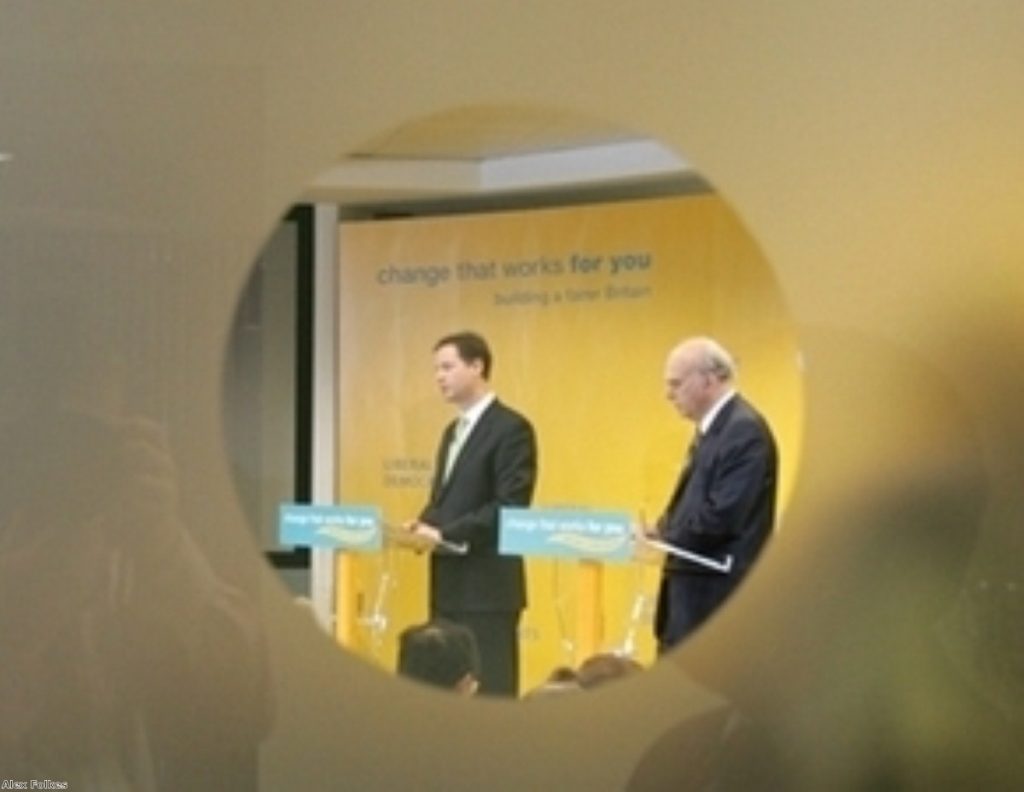Ming leads Lib Dem backlash against ‘pick and mix’ Cable
Vince Cable finds himself on the receiving end of vicious attacks from Nick Clegg loyalists led by Menzies Campbell today.
The Liberal Democrat veteran hit out at the party's business secretary after a summer of growing pressure on Clegg's leadership largely fuelled by Cable and his outrider Matthew Oakeshott from the Lords.
Cable has refused to rule himself out to take over from Clegg while Oakeshott has claimed the Lib Dems could do better in 2015 with a different leader.
Last weekend it emerged that Cable has been exchanging texts with Labour leader Ed Miliband, prompting deep suspicion – and finally critical comments – from his party colleagues.
"I don't think it helps a partnership to suggest that you may already be looking for another partner," Campbell told the House magazine.
He warned that disaffected Tory backbenchers would respond negatively to the Lib Dems' coalition weakness, prompting them to ask themselves: "If he's talking to the other lot, why are we are bothering with this lot?"
Cable defended his actions on ITV's Daybreak this morning. "In politics you have to have a reasonably adult way of dealing with people," he said.
"I very, very occasionally talk to Ed Miliband and sometimes his people, and indeed people across the spectrum.
"There's nothing to be embarrassed about for him or for me."
Cable's allies may find it ironic that Campbell's comments came as Clegg himself made overtures to the Labour party. The deputy prime minister suggested at an event in Cambridge that he would be prepared to enter into coalition negotiations with Labour in the event of a hung parliament after the next election.
He attracted laughter on claiming that he would "much rather be prime minister", but appeared resistant to Labour supporters' traditional rejection of liberal ideas.
"I don't buy this idea that liberalism is somehow a subset of the Labour party," Clegg insisted.
Campbell dismissed the idea that the Lib Dems should reject Clegg's leadership ahead of the 2010 vote.
"I see no appetite in the party for another leadership election and I would most certainly argue against it and I would argue that those people who signed up in droves have got to understand that there's a responsibility to see this through," he added.
Martin Horwood, the Lib Dem MP for Cheltenham, told politics.co.uk he did not view media reports as a "big issue" for his party.
"The instinct is that when people attack your friends you stick by them and rally to them," he said.
"Nick Clegg has shown enormous grace under fire. The idea it [a leadership election] will do us any good is crazy."
Earlier this month YouGov released its polling panel's latest assessments of the three party leaders. Twenty-three per cent of Conservative voters in 2010 judged David Cameron to be a "natural leader", compared with seven per cent of Labour backers for Ed Miliband and eight per cent of Lib Dems for Nick Clegg. Only two per cent judged Clegg to be 'good in a crisis'.
Concentration on the party's leadership may be missing the point. The International Institute of Strategic Studies, publishing its annual review of world affairs yesterday, assessed the Lib Dems' overall progress in the coalition as "uncomfortable".
"They shared the political backlash from public sector cuts, unemployment and low growth," its overview of the British political situation stated.
"Meanwhile, items on the Liberal Democrats' own agenda, such as reform of the upper House of Lords, were not given high priority.
"As a result, it seemed inevitable that many core supporters would become disillusioned, and that the party was at risk of a major setback at the next election."





-01.png)